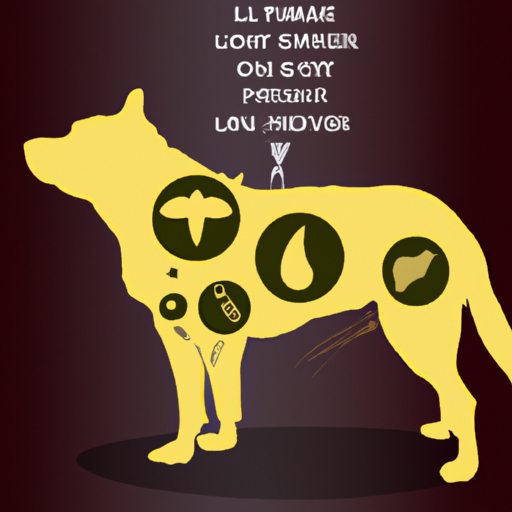As a caregiver, it is your responsibility to keep your furry friend healthy and happy. Your dog’s liver plays a significant role in their well-being, and understanding what could potentially harm it is crucial. In this article, we will explore the causes of liver failure in dogs, covering everything from toxins to diseases.
1. Exposure to Toxins
Your four-legged friend has a curious nature, and this could lead to ingestion of dangerous substances. Items such as household cleaners, pesticides, and certain plants can cause liver damage if ingested.
Here are some common toxins:
- Blue-green algae
- Certain types of mushrooms
- Lead and other heavy metals
- Certain types of medication, including over-the-counter pain relievers
2. Viral or Bacterial Infections
Just as you can fall ill due to a virus or bacteria, so can your dog. Certain types of viral and bacterial infections can lead to liver failure in dogs. These include leptospirosis, infectious canine hepatitis, and canine adenovirus.
3. Chronic Diseases
Chronic diseases such as diabetes, pancreatitis, and Cushing’s disease can lead to liver damage over time. These diseases put excessive stress on the liver, causing it to work harder than it should, leading to potential liver failure.
| Disease | How It Affects The Liver |
|---|---|
| Diabetes | High blood sugar levels can damage liver cells over time |
| Pancreatitis | Inflammation of the pancreas can cause damage to the liver |
| Cushing’s Disease | High levels of cortisol can lead to liver damage |
4. Genetic Conditions
Certain breeds of dogs are more prone to liver disease due to genetic predispositions. Breeds such as Bedlington Terriers, Doberman Pinschers, and West Highland White Terriers are known to have a higher risk of developing liver disease.
5. Poor Diet
Just like humans, dogs need a balanced diet to maintain their health. A diet high in fats and low in essential nutrients can lead to obesity and other health issues, including liver disease.
Frequently Asked Questions
Q: How can I tell if my dog has liver disease?
A: Symptoms include loss of appetite, weight loss, vomiting, and jaundice. If your dog is showing these symptoms, consult with your vet immediately.
Q: Can liver disease in dogs be treated?
A: Yes, depending on the cause and stage of the disease. Treatment may include medication, diet changes, and in severe cases, surgery.
Q: Can liver disease be prevented?
A: While you can’t prevent all causes of liver disease, maintaining a healthy diet and limiting exposure to toxins can reduce the risk.
Remember, you’re not just a caregiver; you’re a crucial part of your dog’s life. By understanding the potential dangers to your dog’s liver, you can help ensure they live a long, healthy, and happy life.



